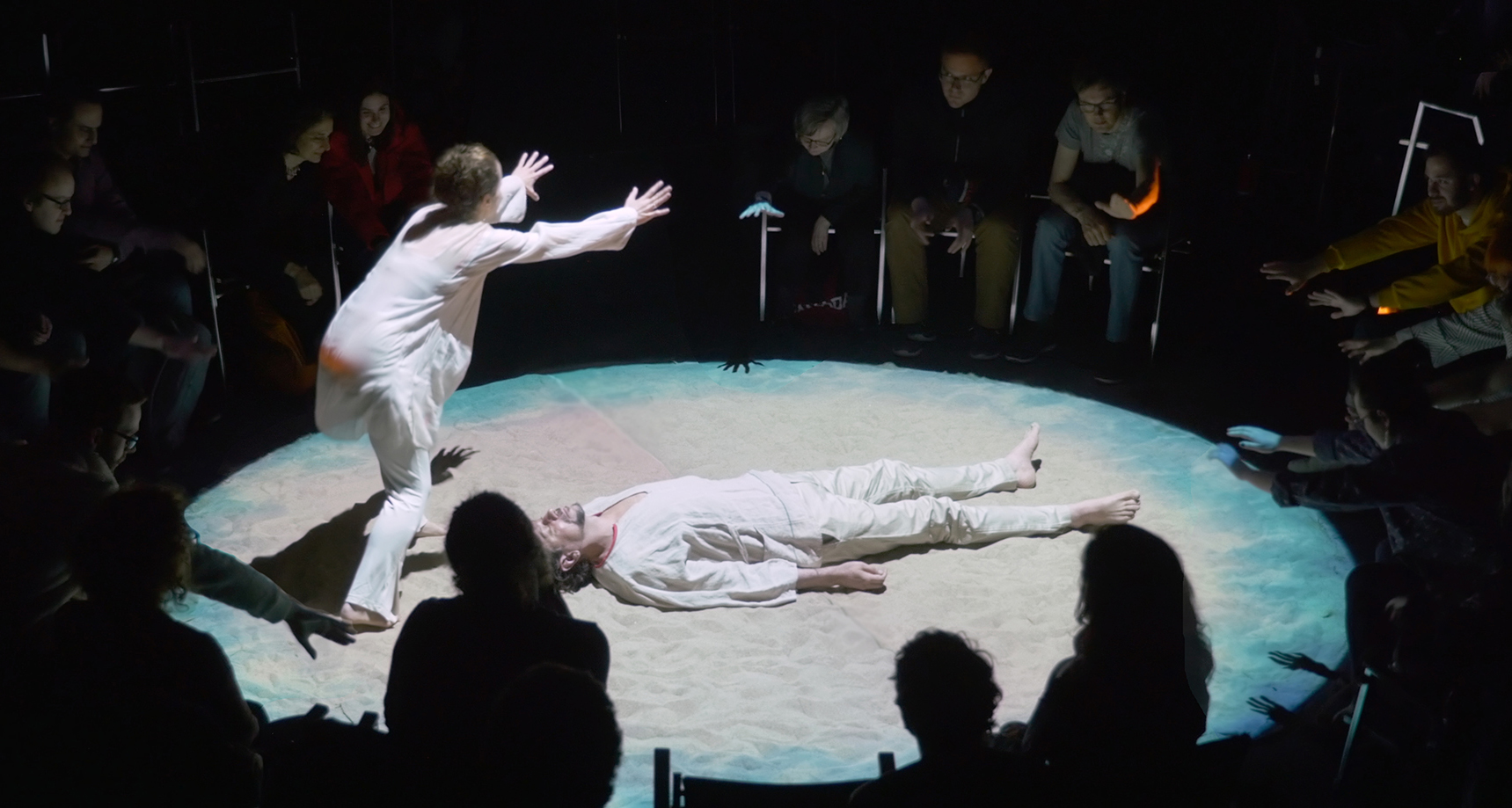A new U of T lab, supported by a $5-million gift from BMO Financial Group, will bring together the disparate worlds of artificial intelligence and theatre to generate new ways of thinking about and experiencing both.
David Rokeby, the director of the BMO Lab for Creative Research in the Arts, Performance, Emerging Technologies and AI, says the facility will give students and researchers the chance to explore the differences – and connections – between human and machine intelligence. “One of my concerns is that in our amazement and fear of AI, we lose sight of the nature of our own intelligence,” says Rokeby. “Machine learning systems should be respectful of what we care about as human beings.”
At the BMO Lab’s opening last fall, a demo project featured an actor performing lines from Shakespeare’s The Tempest, using gestures and a hidden sensor on his wrist to conjure thunder from the public address system and lightning from the stage lights.
Rokeby explains that the BMO Lab aims to investigate the creative potential for artificial intelligence and other emerging technologies in three novel ways.
Advancing the artist’s craft
The first will explore technology’s role in advancing the theatre arts themselves. Game-playing AI algorithms, such as Google’s AlphaZero, are transforming how grandmasters play chess. Similarly, Rokeby anticipates that advanced technologies could conjure extraordinary performances out of actors and other artists. “We can deploy technology to advance an artist’s craft,” he says.
The script that writes itself
Second, the BMO Lab aims to work with scientists and engineers in the early stages of developing a new technology for the arts. This will enable BMO Lab participants to help shape the technology based on their experience using it, while inventors and engineers gain unique feedback that’s typically not available to them. Already, the lab is experimenting with software that uses AI to assist with scriptwriting, for example. 1 “I’m interested in the possibilities of a play that’s continually writing itself during the performance – in response to things members of the audience say, or to what the actors are doing on stage,” Rokeby says.
He cautions, though, that what makes good research may not always make for a good performance and vice versa. “We want to make sure that we’re not a slave to either of those – that we can find where those two things meet and really run with it.”
Inviting the public in
Third, Rokeby hopes to attract Canadian and international artists to the BMO Lab to create theatrical works that will bring the public face to face with emerging technologies, such as AI, augmented reality and the Internet of Things. 2
A crucial aspect of the lab is that all students will be equally involved in the creative process, regardless of their field of study. For now, the lab will offer one course, and several summer research internships, which are open to students from a variety of disciplines.
Recent Posts
People Worry That AI Will Replace Workers. But It Could Make Some More Productive
These scholars say artificial intelligence could help reduce income inequality
A Sentinel for Global Health
AI is promising a better – and faster – way to monitor the world for emerging medical threats
The Age of Deception
AI is generating a disinformation arms race. The window to stop it may be closing






One Response to “ The Technologies That Are Transforming Theatre ”
This is a fantastic and very relevant topic!